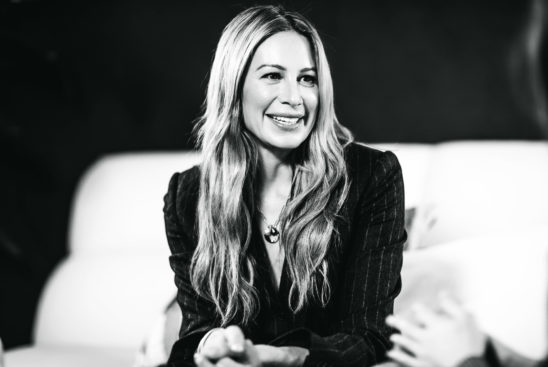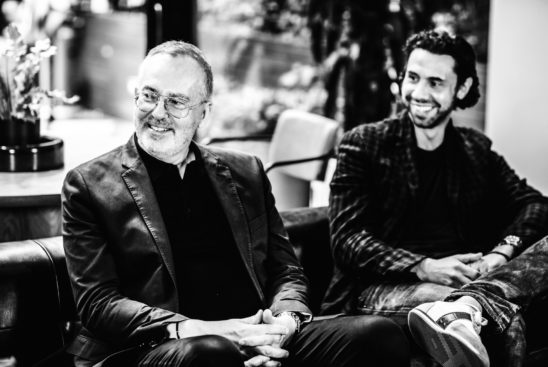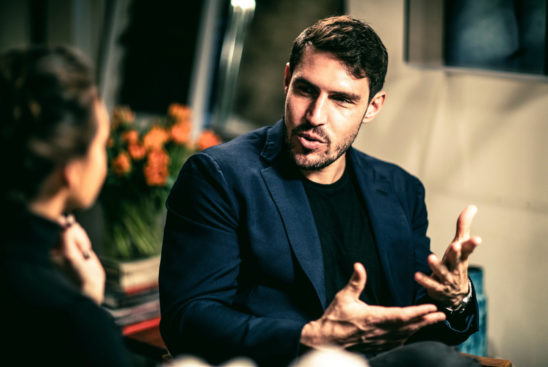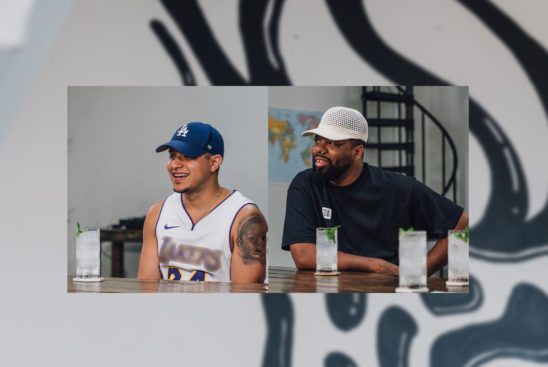Interview by Lauren Neuschel
Describe the “Cards Against Humanity” journey over the past decade.
Max Temkin [founder]: “Cards” is coming up on eight years! I started it with seven of my childhood friends. We were the nerds in school, and we have a long history of making games together. We were sort of comedy nerds, but a subspecies of nerd. We all went to elementary and middle school together. We’d sit at the lunch table and read out loud from comedy books that we got for our bar mitzvahs. I remember we would all spray chips out of our braces because we were laughing so hard. I still can’t eat Doritos. That’s where “Cards” was born– at the lunch table. We made a bunch of other party games to play with each other. “Cards” was the first one we worked on where we played it one night and woke up the next day and said, “That’s pretty fun, we should keep working on this.” There was never any intention of it being a product or something that would ever make any money. It was never part of our life plan to make games or do anything in comedy. It was just one accident after another. Then we put it online and it developed a cult following. I knew about Kickstarter pretty early, and we thought that that would be a good platform. We were one of the early games on Kickstarter. That paid for our first printing, which sold out. So did the second. And now we have a business.
A big part of the “Cards” journey was very unintentional. How did you transition from making the game for fun to running a business?
Max: To be honest, that’s a struggle we have as a company right now. We’re getting to be a big company. Across all of our products we have 30-some employees, plus the Writer’s Room. All of these people’s livelihoods now depend on “Cards.” I think there’s some tension there. On the one hand, people want the stability of a business where people know what they’re doing and there’s a P&L sheet and a five-year plan. From the comedy point-of-view, the essential funniness of “Cards” is a high-wire act. We’re kind of making it up as we go along. We’re a little self-destructive and we take risks. If we had a five-year plan, we wouldn’t be writing comedy for the Trump presidency, we’d be writing it about the Clinton presidency.
Julia Weiss [head writer]: We watched a lot of good comedy become tragedy with the Trump cards that we wrote.
Jo Feldman [head writer]: We were so sure of ourselves.
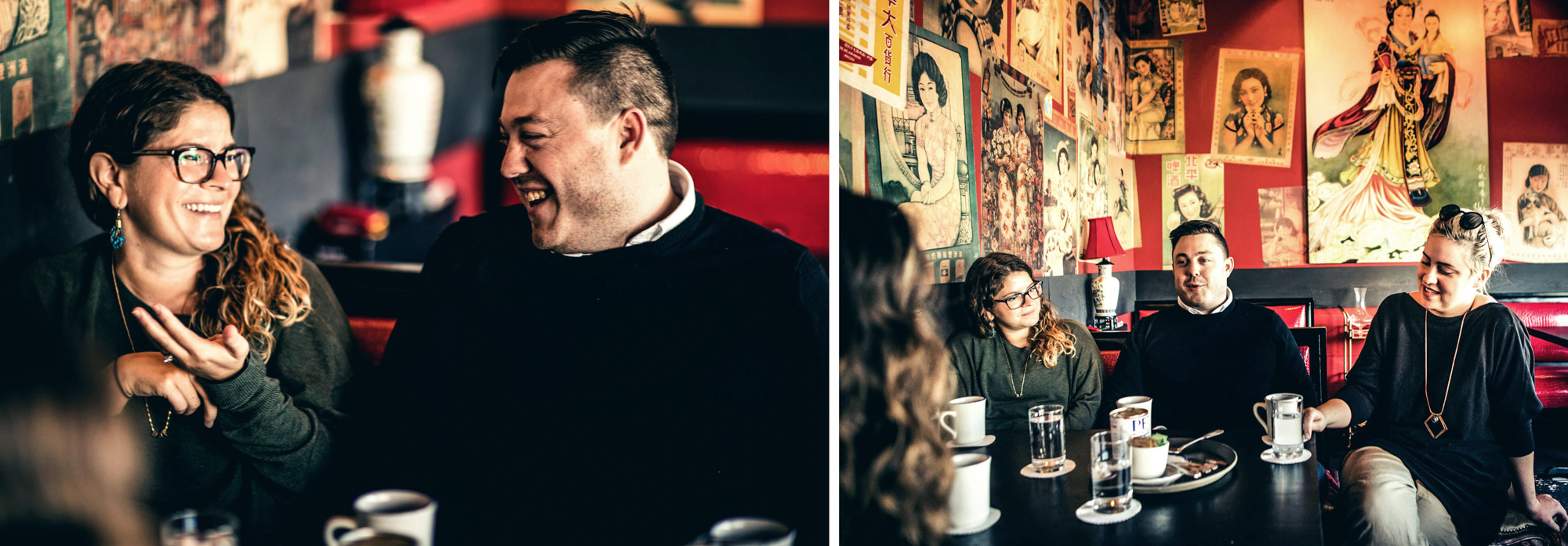
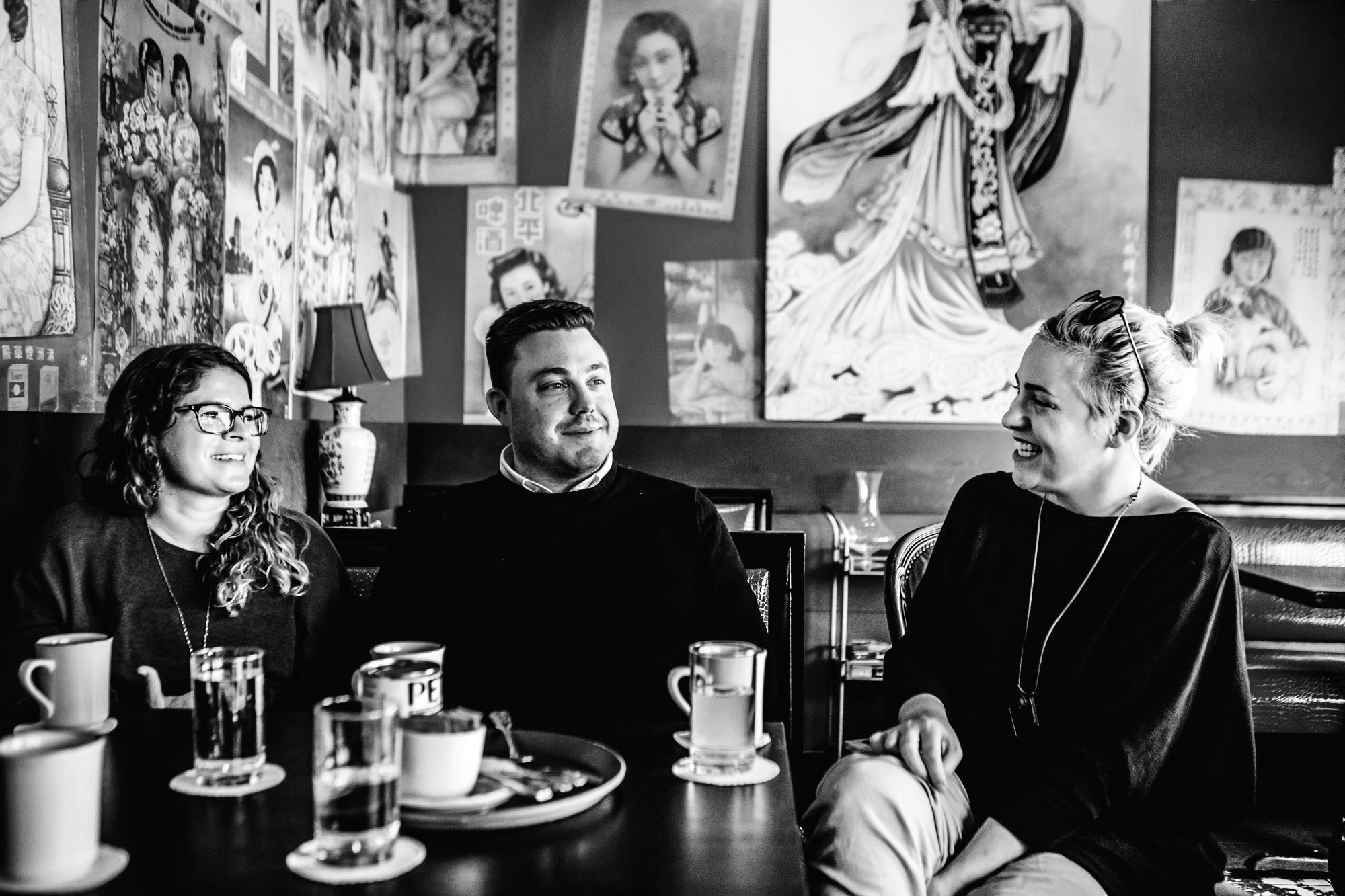

With the election outcome, how hard was it to make that pivot and write about a topic you didn’t anticipate or stand behind?
Jo: In the Writer’s Room we play-test our new cards alongside existing cards, and whenever we find those Trump cards it makes us sad. It makes us not want to write too much political stuff right now. Everything is so volatile. Like, is this going to be relevant in six months? Things are changing every day, and they’re so dramatic. I think we try and pause before we go with an idea, especially with Trump. I think we’re trying to make ourselves feel better right now.
Julia: I think our comedy has gotten more cerebral, commenting more on the general condition of being a human and the strange lovely things or the strange gross things. “What even is being alive and being a person right now?”
Jo: I feel like you have to temper your anger with Trump or else it’ll get the best of you. I got more worked up last week watching a woman at Whole Foods leave her cart adjacent to where all the other carts were, than I have about anything Donald Trump has done this week. Seeing that woman leave her cart in the middle of the aisle, I was like, “This is the problem. We’re the problem.” We all have to do this thing called life and function together. If you’re leaving your cart, someone else has to deal with it. Part of this is a societal issue.
What were you like as kids?
Jo: When I was a child I was Little Miss Sunshine. I was a really happy, obese girl with a back brace, braces, and glasses, and I had no idea that I shouldn’t feel okay about it. Let’s just say that people weren’t worried about what my plans were on the weekend. I was hanging out with my parents who were and are my best buds. I was truly, blissfully ignorant about my situation. I was always a casual observer of people’s weirdness and behaviors. It’s made me, as a comedian, strong at observing people’s shit. Because I was always watching people do things or get away with things or lie or pretend. It’s made me really able to deconstruct people, process things really quickly because I’ve been watching while no one was paying attention to me.
Julia: I was very similar as a child in terms of watching. My childhood was full of a lot of living in my own dream world. I had a group of close buddies when I was little; they were all boys. I didn’t learn a lot of the things that little girls are taught to do and be. I was always removed and fascinated by girls who didn’t want to get dirty or who didn’t laugh at gross stuff. I was like, “What are you?” I had never had a lot of normal behaviors hammered into me. So I learned from watching and figuring out how other people learn to be human. I think that watching why people do what they do really influences my comedy.
Max: I think there’s something essential to the comedic world where you have to feel like an outsider as a child. Many comedians are weird, broken people and they’re on the outside of society looking in. The “Cards” guys…we were just nerds. We got bullied by the same bullies. We’d go to the basement of one of our parent’s houses, plug a bunch of computers in, build a network with a router and just play for 24 hours.

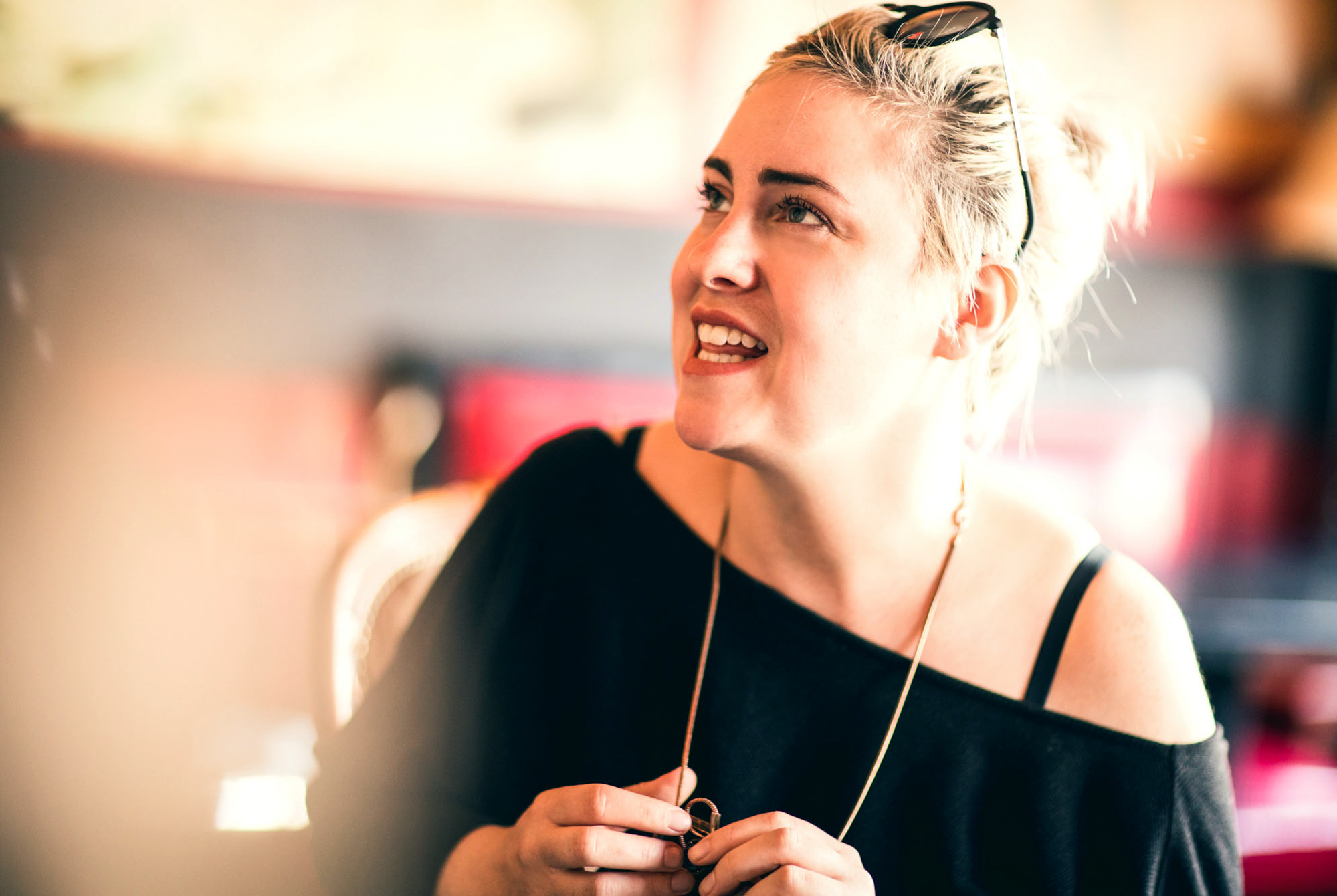
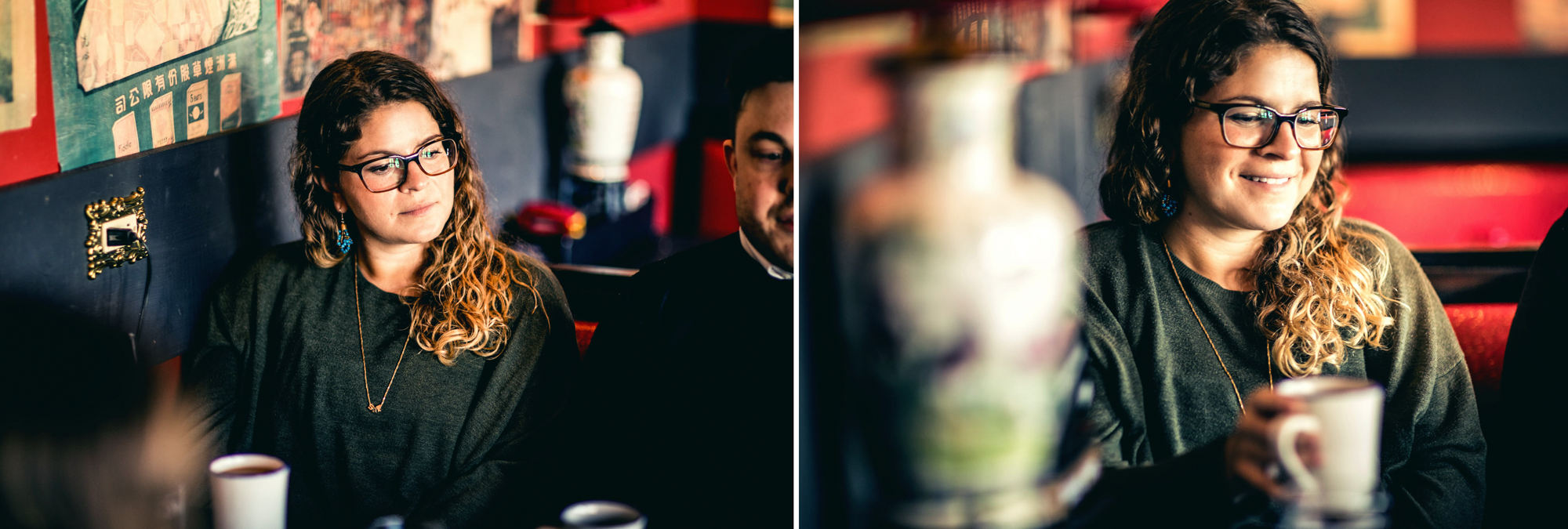
Despite feeling like an outsider, did you feel a sense of belonging within the gaming or comedy world?
Max: Yes, but this was during the time where it didn’t mean anything to be a gamer. It wasn’t an identity in 1999. Maybe you’d go to the local Game Stop and meet someone else browsing, but I think today nerd culture is going through a weird thing. It’s becoming super mainstream, and everyone is realizing that they’re a nerd about something. Back then it wasn’t funny or cool. It wasn’t an identity that we constructed. It was just all we had.
Jo: Your coping mechanism.
Max: Yeah. I had these worlds I could retreat into. I didn’t go on a date until college, but I still know every class of Federation Starships and all of their specs.
What’s the process like to make one card?
Max: When we started writing cards, we didn’t know anything about comedy writing. When the game started getting popular and we had to start writing a lot more cards, we didn’t know what to do. I had listened to an episode of “This American Life” where they interviewed some people who worked at The Onion about how The Onion writer’s room works. I was just like, “We’ll just do that.” We have this huge spreadsheet called “The Hopper” with all of our ideas. I think there are over 10,000 card ideas on The Hopper right now. Any of the eight “Cards” guys can brain dump in there. It’s raw and unfiltered and anonymous. When we have meetings someone picks cards that make them laugh and they try to sell that card to the group, and the group tries to pick it apart. “People won’t get this reference.” “This will be out of date.” “This won’t work within the grammar of the game.” If it survives that process, it goes into another list, “The Short List.” Then that list gets filtered again. At one point we thought public submissions would be the way the writing worked; people would want to see their cards in the game. We’ve never gotten an idea from all of the submissions we’ve received. It’s depressing because it’s like, “Oh, this is what people think the game is?”
Julia: When we do public booths where people can make their own cards, you do get a depressing amount of people who are like, “This is my chance to say something really fucked up and sad and offensive.” The game isn’t offensive for the sake of offensiveness.
Jo: We do nuanced poop jokes. We don’t do homophobic jokes.

Julia: Dark humor is a powerful tool. Comedy is an important social tool. You need to be able to dabble in dark areas, but doing so intelligently with the goal of making some broader point. Even if you’re just having fun playing and laughing at a party, there is some higher work being done intellectually. I think that’s noble and good. I don’t even want to repeat the things that people have pitched to us.
Max: The Writer’s Room is a newer project. The “Cards” partners did the writing for a long time, but we’re basically the same person. We’ve been friends since kindergarten. We’ve read all of the same books. We’ve seen all the same movies. We went to the same schools. We’re all Jewish nerds.
Julia: They have one pair of pants that magically fits all of them.
Jo: It’s a khaki.
Max: We’re all the same person, so it’s a limitation on the jokes that we can think of. Sometimes the partners go on writing retreats where we’re trying to be funny and make each other laugh, but no one is funny that day or we don’t have a good idea. Then it’s like, “Oh my God, is this how it ends?” So the Writer’s Room is just to give us a little bit of breathing room. When we don’t have something we can always go to the writers for more ideas.
Jo: Even if a card starts as a kernel in the Writer’s Room, it will be touched by every one of the partners. It gets approved by all of these quality controls —our weird minds, their weird minds — and then it becomes a perfect card.

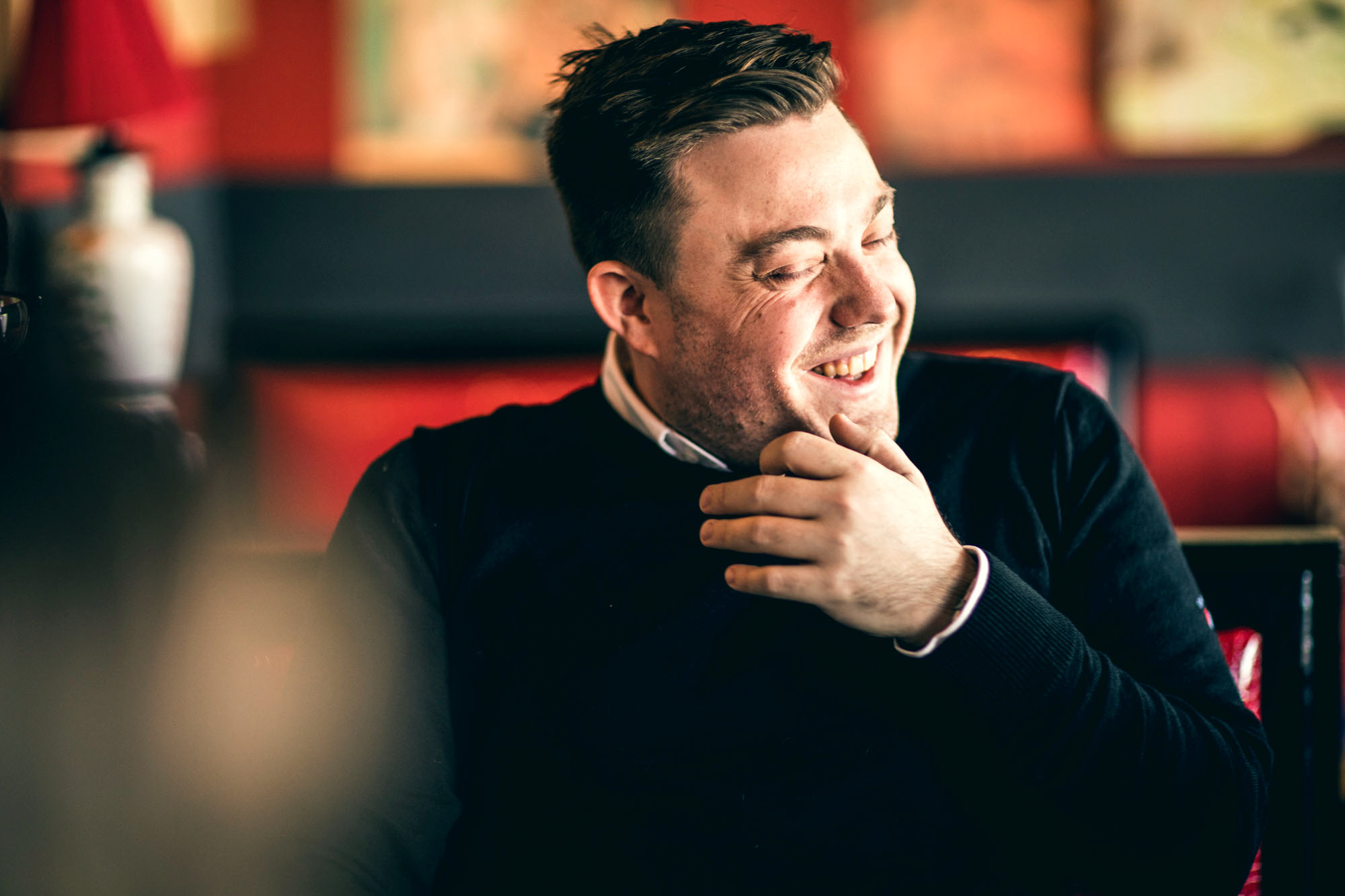
Have the eight partners ever butt heads over the years?
Max: Sometimes business people ask me, “Should I start a company with eight people and do everything equally?” No. Nobody should do that. It’s not prescriptive. It just worked for us. We have spirited disagreements, but that’s not because of “Cards.” We sit together and eat dinner and argue, and that’s what we’ve done since first grade. It’s just our relationship. There’s a kind of candidness with the friendship that I have with these guys where everybody busts each other’s balls. It’s not personal. It’s those old friendships that you have. We sort of decided really early on that we were going to split this thing equally. We made the decision that we would never fight about the money. The money would never be more important than our relationship. That truly was never put to the test. We got very lucky about that. At the beginning there wasn’t any money. It would have been stupid to argue over $50. “Let’s just split it equally and we’ll all go out to dinner.” Once it took off, we did well enough that it was dumb to argue about the money. If I was able to quit my job and sustain myself working on “Cards,” and I got a new computer, I didn’t need anything else. What else would I want besides all of my friends to do well?
We’re going to go around and each of you tell me something that most people wouldn’t know about the other person.
Max to Jo: I didn’t know Jo super well until Julia brought her in. Jo is probably the most well-liked, positive person in all of comedy. Every single person has purely joyful, positive associations with every experience they’ve had with Jo.
Jo to Julia: I’ve known Julia for almost a decade, so I know a lot about Julia that nobody knows. She was this improviser that I was enamored with on stage. I wanted to be friends with her, and she wanted to be friends with me. I couldn’t understand it. Julia is extremely artistic. People know she’s an incredible writer and performer, but she’s also an amazing artist. She does beautiful drawings, paintings and doodles. Every day she looks completely different. I’ve never seen her wear the same outfit twice, and if she has, it confused me enough that I wasn’t able to recognize it from another day. She feels [emotions] a billion times harder than most people I know. I remember one time I went to her old apartment years ago and we were talking about Harry Potter and we were talking about Dobby the House Elf, and she started crying about how horrible his fate was. She knew it was ridiculous, but I just watched her cry and took a picture of her.
Julia to Max: Max is a successful human who has a very cool house that has a person inside of the walls that tells you if the temperature has changed. He wears cool shoes and pants, but he walks through the world with a boy-like wonder. He has this child-like whimsy about him that I don’t think the world knows. He’s an adult who is learning about the law, and he’s politically active. He’s a gifted writer and very smart guy, but he’s also a seven-year-old boy. He walks through the world wide-eyed for the next thing that will delight and awe him. I think a lot of smart people end up cynical, but Max has the heart of a child.
Jo: He’s a thrill-seeker, but the thrills are never dangerous.
Julia: If there’s a puppy or baby in the office, it’s like he’s never seen a puppy or a baby in real life, but he knows them from the cute pictures on the Internet and he can’t wait to see them.
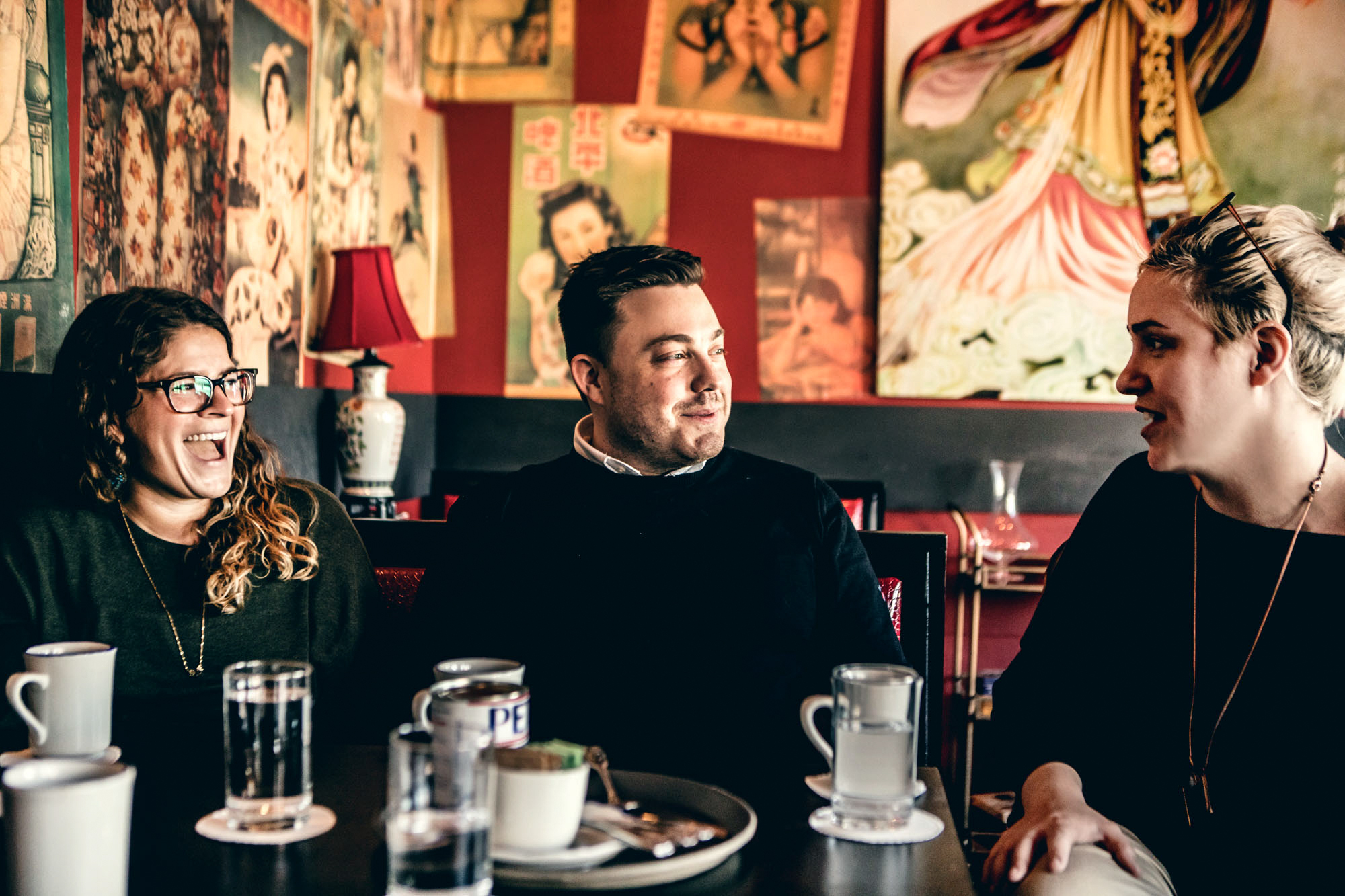

What’s Chicago’s best-kept secret?
Jo: The bathroom at the Intercontinental Hotel downtown.
Max: The Vienna Beef Factory Store.
Julia: The Chicago Athletic Association has a room that looks like Hogwarts. You can just go in there and write and you don’t have to buy the $13 coffee.
What’s one job you would never want?
Julia: I would never want to have a job that required me to have a gun.
Max: I would not want to work in a tollbooth.
Jo: I couldn’t be a doctor in an emergency situation.
What’s your life mantra?
Max: It drives me insane when the little guy is getting screwed in some situation, so that sort of motivates everything I do.
Julia: Be excellent to each other. I think that’s the most beautiful thing and the way we should all strive to live.
Jo: Life stuff before show stuff. Show stuff can just be anything that takes you away from remembering your core values. If your situation at home isn’t happy, if your life isn’t happy, none of that other shit is going to matter.

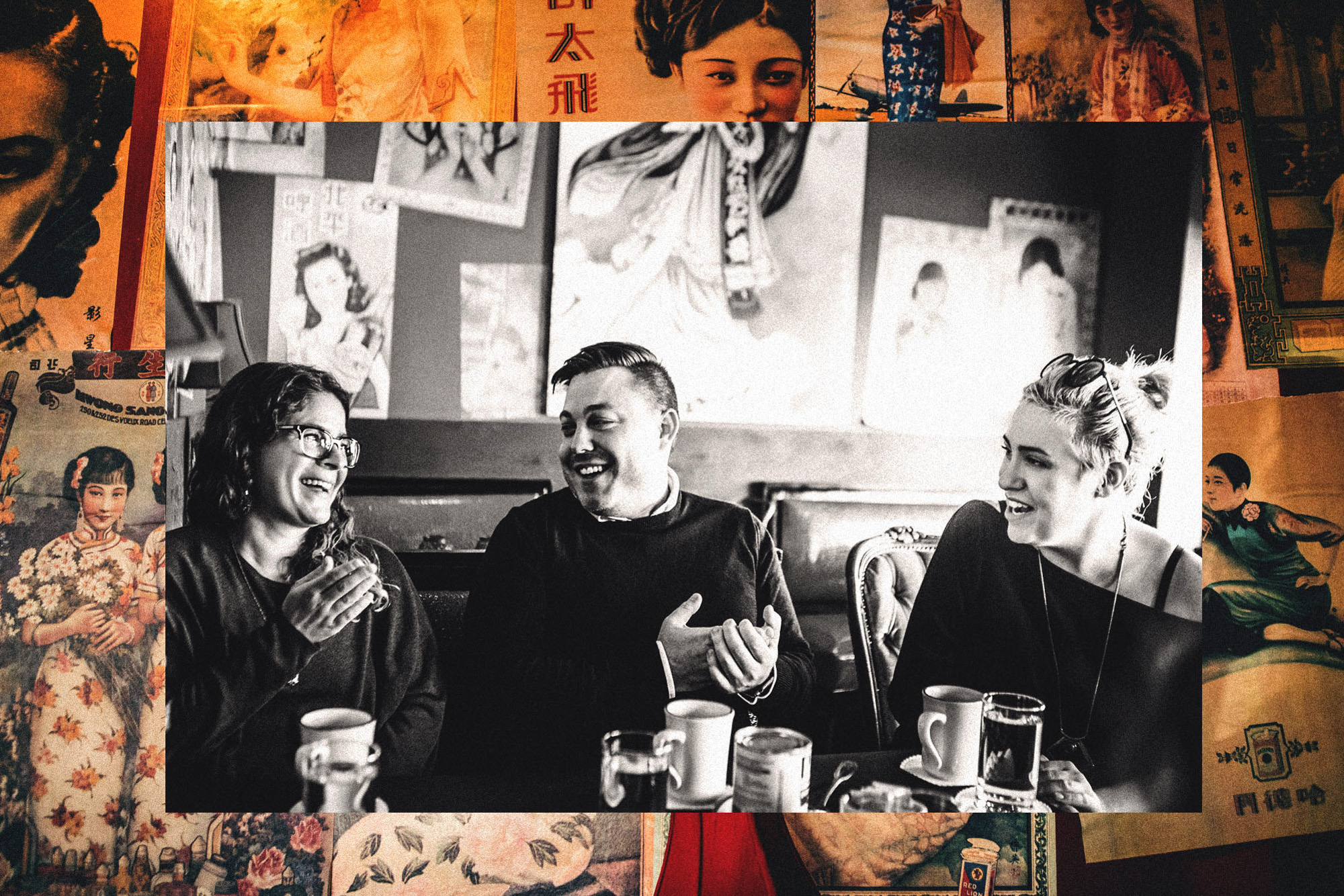

If you could have a drink with anyone, who would it be?
Jo: I’ve always wanted to meet Gilda Radner. I think we’d be buds. I would also love to talk to my grandmas at 30 years old to see what they were like before they were older people.
Julia: Prince Harry, because I think we might fall in love. Or Hillary Clinton, so I could give her a hug and tell her, “I know you’ve always tried your best.”
Max: Chance the Rapper. Other than him being my favorite music artist, I think there’s probably some similar creative struggles that he’s going through that “Cards” is in. He’s independent; he owns his own thing, he can sort of go in any direction, which can sometimes be creatively paralyzing. He went from doing his own thing, to the whole world looking. We’ve had this thing for years with “Cards” where we release something and the day it comes out I just sit there thinking, “What is the next thing we’re going to do? How do we possibly satisfy people after this?” I watch people get excited about things that we do and then feel dread. “How are we going to meet people’s expectations again?” Maybe I’m projecting and he’s really confident and has it all figured out, but I’d love to hear what his thoughts are.
What’s a misconception about being your own boss?
Max: There’s a really good interview with Hutch Harris from The Thermals and he talks about making your career as an independent musician. A lot of people conflate those goals of making a living and being an artist. Sometimes it’s possible. Everyone has someone that they look up to who has done both and got really lucky– someone who makes a living and has the creative fulfillment. It comes with a lot of downsides. Being artistically fulfilled and financially fulfilled from the same thing is actually an enormous amount of pressure. The day will always come where you have to choose one. Is this the day that my livelihood takes a hit in the service of my artistic integrity? Or will I compromise my values to make rent? This is all “white people problems,” but I don’t wish that choice on anyone. It sucks. With “Cards,” the more people care what we do, the more I lose sleep. The downside is that it’s almost impossible to be cool and to be popular. I think you have to pick one. We were both for a while, but we definitely crossed the line into popular and not cool. There were a couple of years where it was really popular and people thought we were the shit. We were really cool and cutting edge. We were very anti-authoritarian. At some point, you can’t possibly sustain that.
Jo: What about Barack Obama? He’s cool and popular. He looks so good in casualwear.
Max: Cool is relative to your scene. If you go to a convention for a thing that’s not your thing, it’s not cool to you. You go into these little worlds. It’s fucking crazy. There are celebrities. There are the “out” people, the “in” people and people with power.
Jo: That’s how Julia and I feel going to conventions with “Cards.” Julia and I come in, not as gamers, not as appreciators of tabletop games, but purely as writers. We talk to people with colored contact lenses in deep costume doing cosplay. You walk into those worlds and you can deeply appreciate that it’s not for you. People are so happy in those worlds.
Max: People get into a scene and they want to be respected in that scene, but people who are cool within a scene are typically not very successful, financially. At some point you have to choose: Do you want to be popular and make a living and have a great life? Or do you want to be cool within the scene? I agonize over that. With “Cards” in the world of indie games, we’re way past the point of being cool. It wasn’t our call to make. But who would have guessed that “Cards” would be popular? It just sort of happened to us; we were just along for the ride.
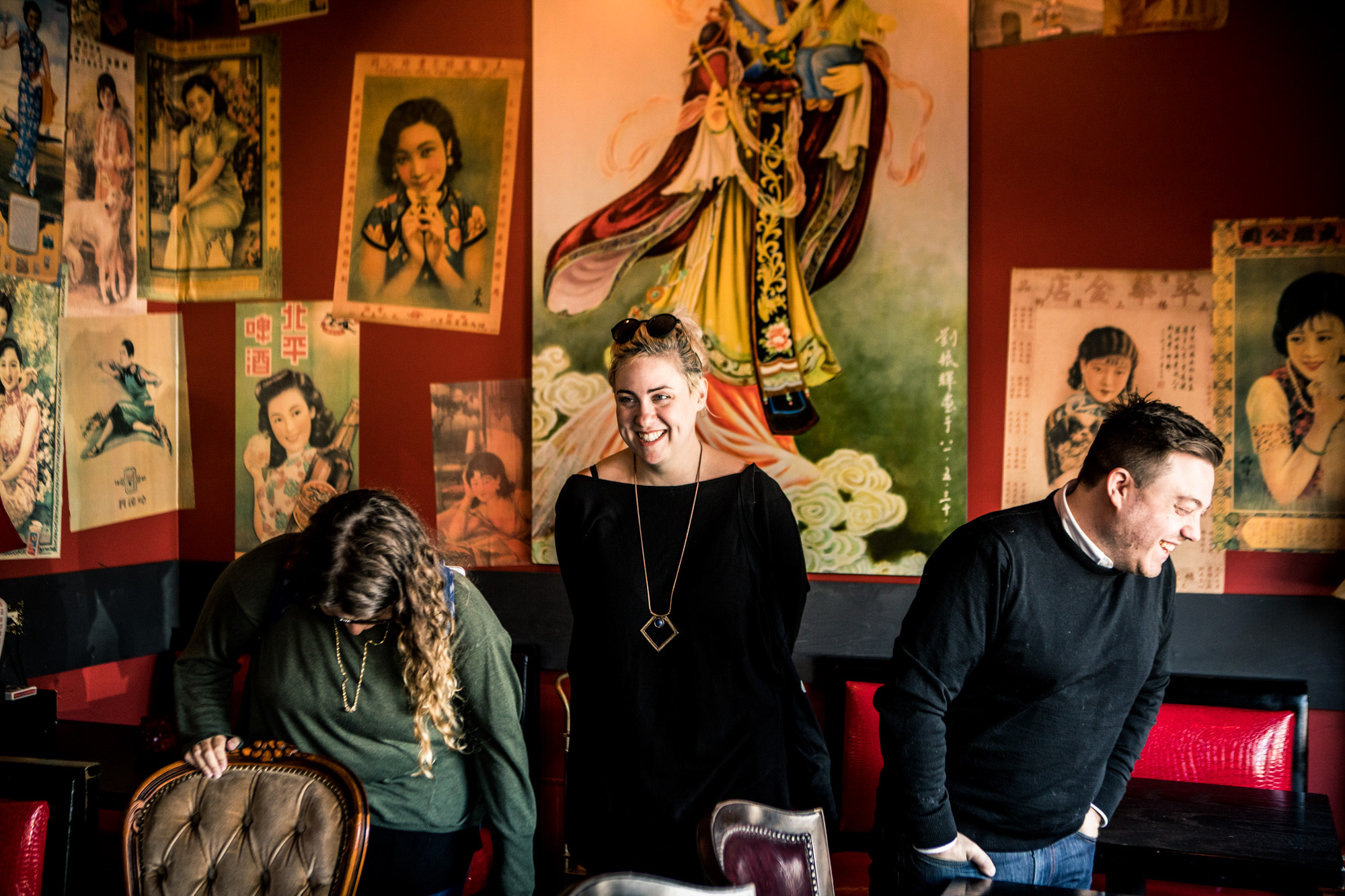
KIRSTEN MICCOLI PHOTOGRAPHY / A DRINK WITH at Fat Rice
Did you enjoy this feature? Subscribe to our newsletter and never miss a drink, we promise we’ll never spam you!

